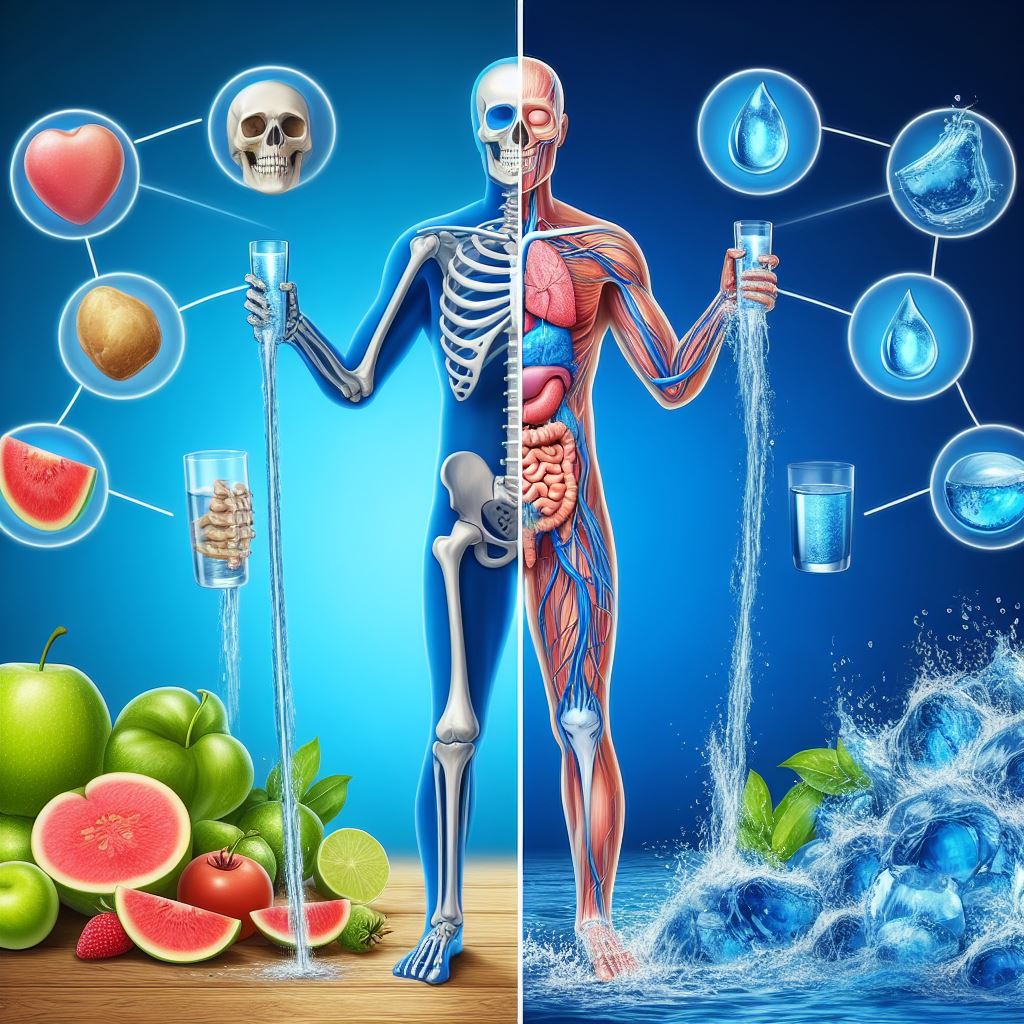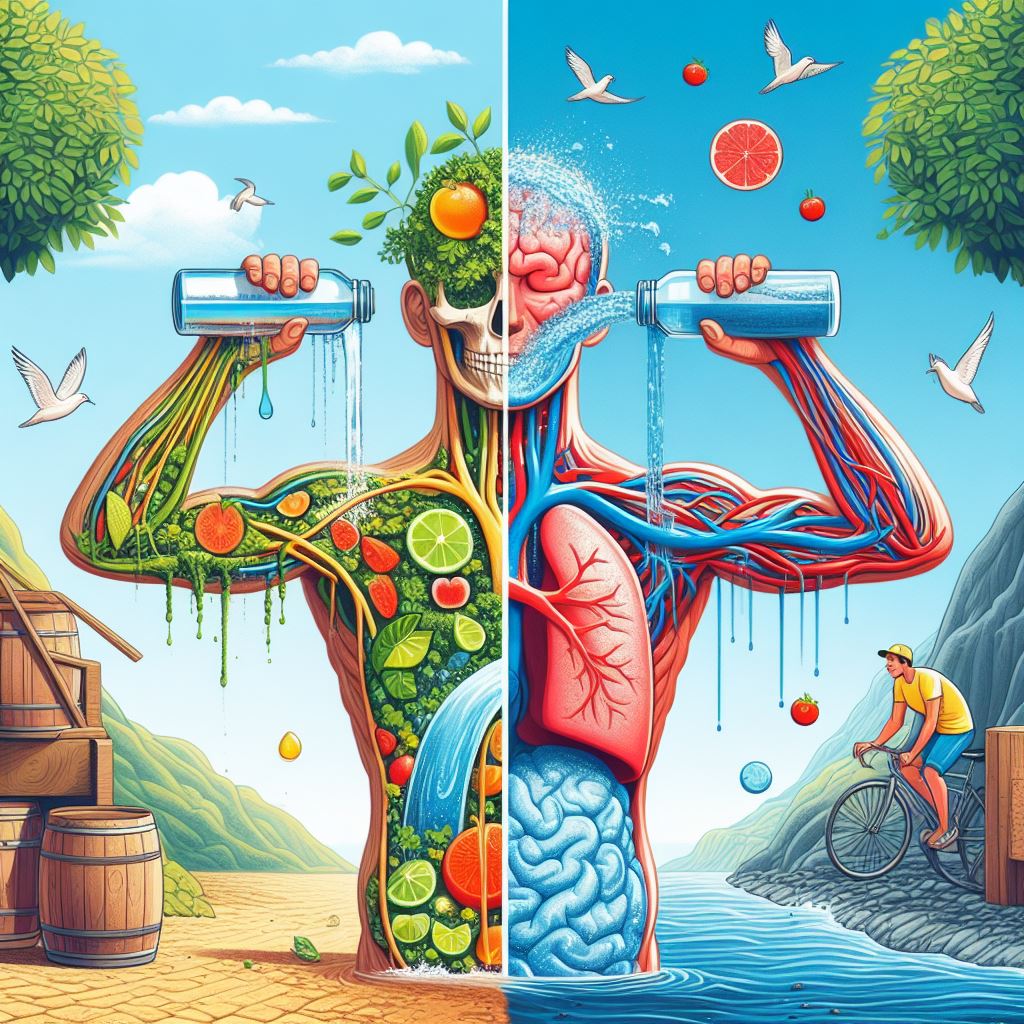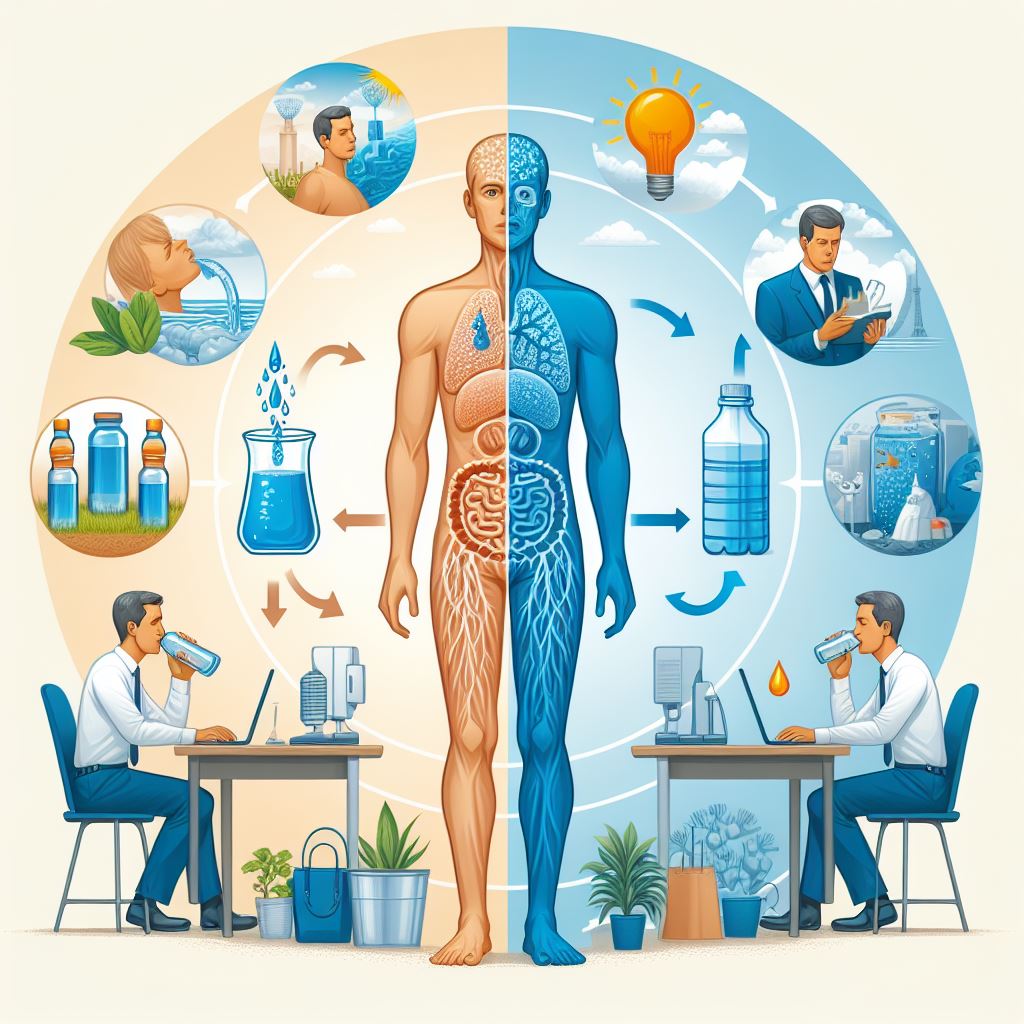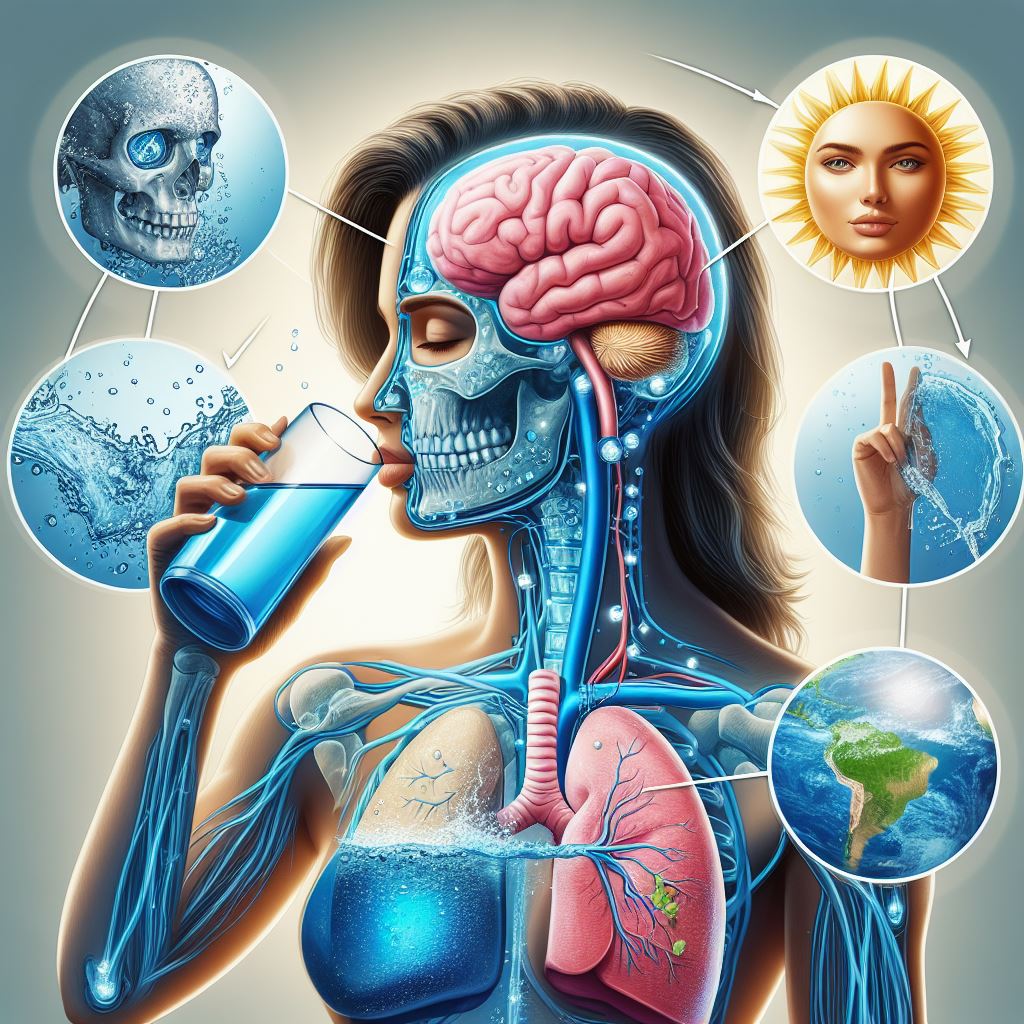喝水的優缺點。
喝水後,它會順著食道進入胃內,並與食物和胃液混合在一起,進行消化和分解。水在胃內停留的時間約數分鐘,幾乎不會被吸收,然後移動到小腸。此時,小腸會釋放大量的膽汁和液汁來促進消化和吸收。最後,水被小腸壁上的黏膜吸收,進入血液循環,並分布到各個器官。血液在體內完成多輪循環後,分解出來的廢棄物和水會來到人體腎臟。廢棄物和水會被數百萬的微小過濾器進行過濾,最終的廢物和水經過輸尿管送到膀胱裡進行儲存。當到達一定的程度時,括約肌就會傳送排放訊號到達大腦。如果憋尿,膀胱內的括約肌就會逐漸被尿液撐大,到達極限後不得不尿出。喝水對人體有著許多好處,同時也可能帶來一些壞處。
好處:
保持水分平衡:喝水有助於保持身體水分平衡,有助於身體正常的生理功能,包括消化、吸收營養和排泄廢物。
促進新陳代謝:充足的水分攝入可以促進新陳代謝,有助於維持身體的能量水平和健康。
改善消化:水可以幫助消化食物,減緩便秘和消化不良的情況。
維持皮膚健康:充足的水分攝入有助於保持皮膚彈性和潤澤,減少皮膚乾燥和皺紋的形成。
減少頭痛:脱水是頭痛的一個常見原因,充足的水分攝入可以減少頭痛的發生頻率和程度。
壞處:
過度水分攝入:過度飲水可能導致水中毒,稱為血清鈉過低症候群(hyponatremia),這可能對健康造成危害,甚至危及生命。
社對尿液稀釋:過度飲水可能導致尿液過度稀釋,這可能會對腎臟功能造成壓力。
肌肉痙攣:如果大量喝水沒有補充電解質,可能會導致肌肉痙攣。
降低電解質濃度:過量飲水可能導致體內電解質(如鈉、鉀)濃度過低,這可能對心臟和肌肉功能造成不良影響。
對腎臟的負擔:過量飲水可能會增加腎臟的負擔,尤其是對於有腎臟疾病風險的人來說。
總的來說,適量飲水對身體健康非常重要,但過度飲水可能對健康造成危害。人們應該根據自己的身體狀況和活動水平來調節飲水量,並密切關注身體的反應。
After drinking water, it travels down the esophagus into the stomach, where it mixes with food and gastric juices to aid in digestion and breakdown. Water typically stays in the stomach for a few minutes and is hardly absorbed before moving into the small intestine. At this point, the small intestine releases a large amount of bile and fluid to facilitate digestion and absorption. Eventually, water is absorbed by the mucous membranes of the small intestine, enters the bloodstream, and is distributed to various organs. After several cycles of circulation within the body, the waste products and water breakdown are directed to the kidneys. Here, they undergo filtration through millions of tiny filters, and the resulting waste and water are sent via the ureters to the bladder for storage. When it reaches a certain level, the detrusor muscle sends signals to the brain for voiding. Holding urine can cause the detrusor muscle in the bladder to gradually stretch until reaching its limit, forcing urination.
Drinking water has numerous benefits for the body but may also have some drawbacks.
Benefits:
Maintains hydration: Drinking water helps maintain body fluid balance, facilitating normal physiological functions, including digestion, nutrient absorption, and waste elimination.
Boosts metabolism: Adequate water intake can boost metabolism, aiding in maintaining energy levels and overall health.
Improves digestion: Water assists in digesting food, alleviating constipation and indigestion.
Maintains skin health: Sufficient water intake helps keep the skin elastic and moisturized, reducing dryness and wrinkle formation.
Reduces headaches: Dehydration is a common cause of headaches, and adequate water intake can reduce the frequency and severity of headaches.
Drawbacks:
Overhydration: Excessive water intake can lead to water intoxication, known as hyponatremia, which can be harmful to health and even life-threatening.
Dilutional hyponatremia: Excessive water consumption may cause over-dilution of urine, which can stress kidney function.
Muscle cramps: Drinking large amounts of water without replenishing electrolytes may lead to muscle cramps.
Electrolyte imbalance: Excessive water intake may cause low electrolyte levels (such as sodium, potassium), which can adversely affect heart and muscle function.
Strain on kidneys: Overhydration may increase the workload on the kidneys, especially for individuals at risk of kidney disease.
In summary, adequate hydration is crucial for overall health, but excessive water intake can pose risks. Individuals should adjust their water intake based on their body's needs and activity levels, while closely monitoring their body's response.




照片:DALLE3
- 1
- 2
- 3
- 4
